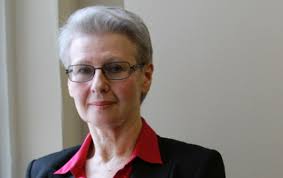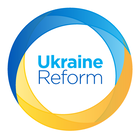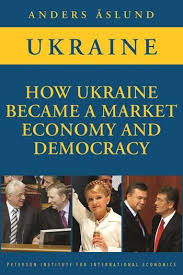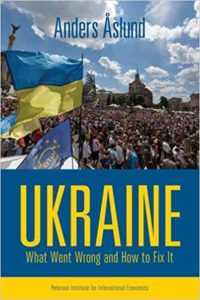If #Ukraine were to become a thriving #democracy, it would stand as a rebuke to Putin’s claim that Western values are unworkable in Orthodox, Slavic Russia. https://t.co/2LlqadEYdm
— Democracy Digest (@demdigest) January 7, 2022
President Vladimir Putin of Russia is playing a game of suspense, according to When he kicked over the global chessboard late last year, massing thousands of troops at the Ukrainian border, he sent the world into panic. An invasion seemed imminent — and beyond it loomed the threat of a new global confrontation, contested by nuclear-armed powers. Things haven’t calmed down since, she writes for The New York Times.
Perhaps he wants Ukraine to fail because, were it to become a thriving democracy, it would stand as a rebuke to his claim that Western values are unworkable in Orthodox, Slavic Russia, The Economist suggests. He may also intend to divide and weaken NATO as well as to create an enemy abroad so as to justify repression at home—as with Memorial, a civil-rights group, shut down just before the new year on the trumped-up charge of being a “foreign agent”.
 No longer content with upsetting the West, Mr. Putin is now trying to force it to agree to a new global dispensation, with Russia restored to eminence. It doesn’t stop there, though, adds Shevtsova (right), a former Reagan-Fascell fellow at the National Endowment for Democracy (NED). Crucially, the geopolitical advance would serve to safeguard Mr. Putin’s rule. So the West, by accepting Russia’s geopolitical position, would effectively underwrite its domestic agenda, too. The United States would become, at home and abroad, Russia’s security provider. It’s quite the gambit. RTWT
No longer content with upsetting the West, Mr. Putin is now trying to force it to agree to a new global dispensation, with Russia restored to eminence. It doesn’t stop there, though, adds Shevtsova (right), a former Reagan-Fascell fellow at the National Endowment for Democracy (NED). Crucially, the geopolitical advance would serve to safeguard Mr. Putin’s rule. So the West, by accepting Russia’s geopolitical position, would effectively underwrite its domestic agenda, too. The United States would become, at home and abroad, Russia’s security provider. It’s quite the gambit. RTWT
Relations have deteriorated more recently not owing to aggression from NATO, but because Russia, unwilling to countenance more former Soviet territories going their own way, invaded Georgia in 2008 and Ukraine in 2014, The Economist reports. It has also waged political warfare across America and Europe over the past decade, in the form of election-meddling, sabotage and assassination. At home, Mr Putin has suffocated democracy by rigging elections, poisoning opponents and crushing civil society. “Putin does not fear NATO expansion today,” argues Michael McFaul, a former American ambassador to Russia. “He fears Ukrainian democracy.”
There are two schools of thought in Kyiv, NED board member Anne Applebaum writes in the Atlantic.
“The skeptical school essentially thinks this whole situation might be a huge bluff: The Russians have deliberately set out to ‘scare the Americans,’ ” she asserts, “in order to create pressure on Ukraine to change its constitution as the Russians would like, or to put Putin at the center of international attention, or to reestablish a Russian sphere of influence inside old Soviet borders.”
 “If Putin believes that Ukraine must be destroyed sooner or later; if he believes that historical wrongs must be righted; even if he just wants to gain back some of the popularity he has lost to COVID, corruption, and a poor economy, then he might have reasons to think that this is a good moment to do it,” Applebaum (left) suggests.
“If Putin believes that Ukraine must be destroyed sooner or later; if he believes that historical wrongs must be righted; even if he just wants to gain back some of the popularity he has lost to COVID, corruption, and a poor economy, then he might have reasons to think that this is a good moment to do it,” Applebaum (left) suggests.
With their control over the media in Russia and efforts to silence civil society and most critics, Putin and the Kremlin are not likely to pay much of any price at home in terms of credibility if Putin decides not to invade Ukraine, argues David J. Kramer, director of European & Eurasian Studies at Florida International University’s Steven J. Green School of International and Public Affairs. On the contrary, an invasion that produces lots of body bags returning to Russia, even with Kremlin control over the media, is apt to prove more harmful to Putin’s grip on power. Of course, it would also be devastating to Ukraine, the true victim of Putin’s aggression and threats, he writes for The Dispatch.
Russia’s aggression against Ukraine is backfiring on the Kremlin, says analyst Kori Schake argues. A report from the Critical Threats Project of the American Enterprise Institute finds that the political and economic costs of an actual invasion are too high for Russia to sustain.
“Putin may be attempting a strategic misdirection that impales the West in a diplomatic process and military planning cycle that will keep it unprepared,” the report states.
 Rather than directly invade Ukraine again, Russia instead seeks to further destabilize the country in advance of its elections, station troops in Belarus, divide NATO, and precipitate Western concessions to de-escalate the crisis, Schake suggests.
Rather than directly invade Ukraine again, Russia instead seeks to further destabilize the country in advance of its elections, station troops in Belarus, divide NATO, and precipitate Western concessions to de-escalate the crisis, Schake suggests.
Moscow’s undeclared war in eastern Ukraine’s Donbas region has always been about more than Ukraine, The Atlantic Council’s Alexander Vershbow contends. The Donbas has been a major front in Putin’s larger hybrid war against the West, aimed at restoring Russia’s great power status and preventing the spread of democratic values that could bring down Putin’s authoritarian regime.
We know how appeasement ends, notes Vladimir Kara-Murza. The 20th century has provided ample illustration of that. Thankfully, there are still voices in Western politics willing to stand on principle — as, for example, the authors of a recent congressional proposal to withdraw U.S. recognition of Putin if he illegally extends his rule beyond 2024. That initiative sent shockwaves through official Moscow, he writes for The Washington Post.
NATO has no stomach to admit Ukraine at the moment, with all the risks of war with Russia that would bring. But ruling out Ukrainian membership would not necessarily placate Mr Putin, The Economist adds.
“The Kremlin knows that there’s no intention by NATO to include Ukraine and Georgia any time in the near future,” says Wolfgang Ischinger, a former German diplomat and chairman of the Munich Security Conference. “The underlying problem is the fear of Ukraine modernising and becoming an attractive model for Russians who live on the other side of the border.”
 Last July, Putin published a long article, “About the Historical Unity of Russians and Ukrainians,” effectively denying the legitimacy of Ukraine’s existence as an independent nation-state, notes Anders Åslund.
Last July, Putin published a long article, “About the Historical Unity of Russians and Ukrainians,” effectively denying the legitimacy of Ukraine’s existence as an independent nation-state, notes Anders Åslund.
To justify his increasingly extreme repression, Putin has cranked up the Kremlin’s propaganda machinery to Soviet levels. But anti-Western messaging will not persuade the population to support him, he writes for Project Syndicate. For that, he needs another highly successful war. And because Russia stands no chance in a big war against the whole West, it needs a much more limited conflict. Hence, Putin’s choice of Ukraine, which he calls a Western vassal.
The West must resist Putin’s call for a “Yalta II” to determine the fate of Ukraine and insist that the Vienna-based Organization of Security and Cooperation in Europe (OSCE) become the dominant forum for East-West negotiations, Åslund argues. The OSCE has the great advantage of having all the relevant countries in Europe, Eurasia and North America represented.
 A new Russian attack on Ukraine is a real possibility this time, much greater in fact than when there was a buildup of forces last spring, adds Kramer, a former assistant secretary of state for democracy, human rights and labor in the George W. Bush administration.
A new Russian attack on Ukraine is a real possibility this time, much greater in fact than when there was a buildup of forces last spring, adds Kramer, a former assistant secretary of state for democracy, human rights and labor in the George W. Bush administration.
Standing up to Putin and pushing back on his threatening and increasingly aggressive behavior are the best way for the West to handle this crisis, he contends. Finding a face-saving way out for him is neither necessary nor our business. He will take care of that himself however this plays out.
Even if Russian boots never march on Kyiv, the continuing threat of an invasion could yet compel Washington and the E.U. to tread more lightly there, and concede a measure of Russian influence, whether the Ukrainians like it or not, The Post reports.
“The conversation has shifted from how to resolve this crisis in Ukraine to how we prevent a war in Europe,” said Andrew Lohsen, a Russia expert at the Center for Strategic and International Studies. “I think the terms are much broader now, and I think whatever happens, Ukraine will end up a worse position than before.”
“Putin does not fear NATO expansion,” argues @McFaul, a former American ambassador to Russia. “He fears Ukrainian democracy,” he tells @TheEconomist https://t.co/a4obBBAtrf
— Democracy Digest (@demdigest) January 7, 2022







